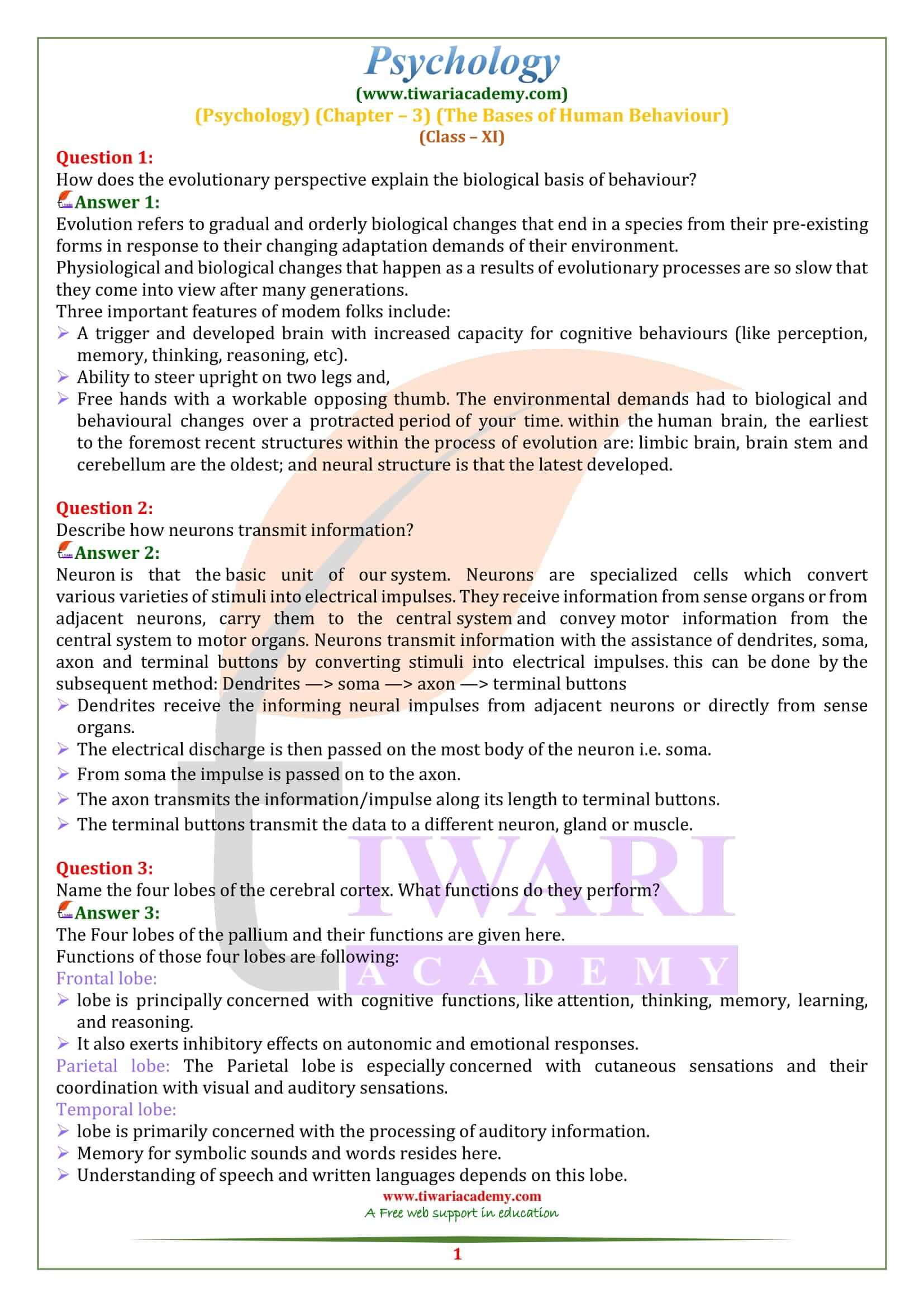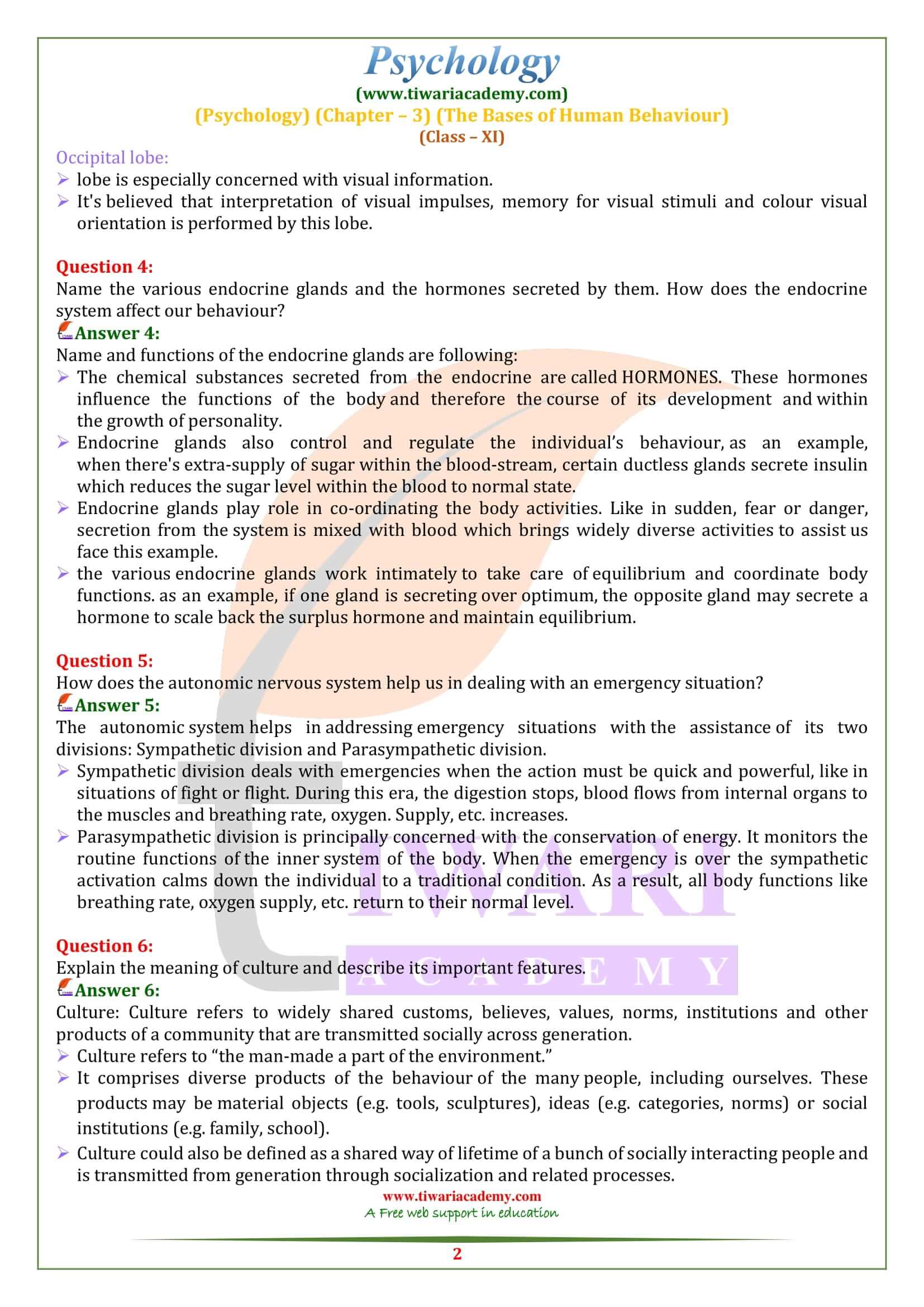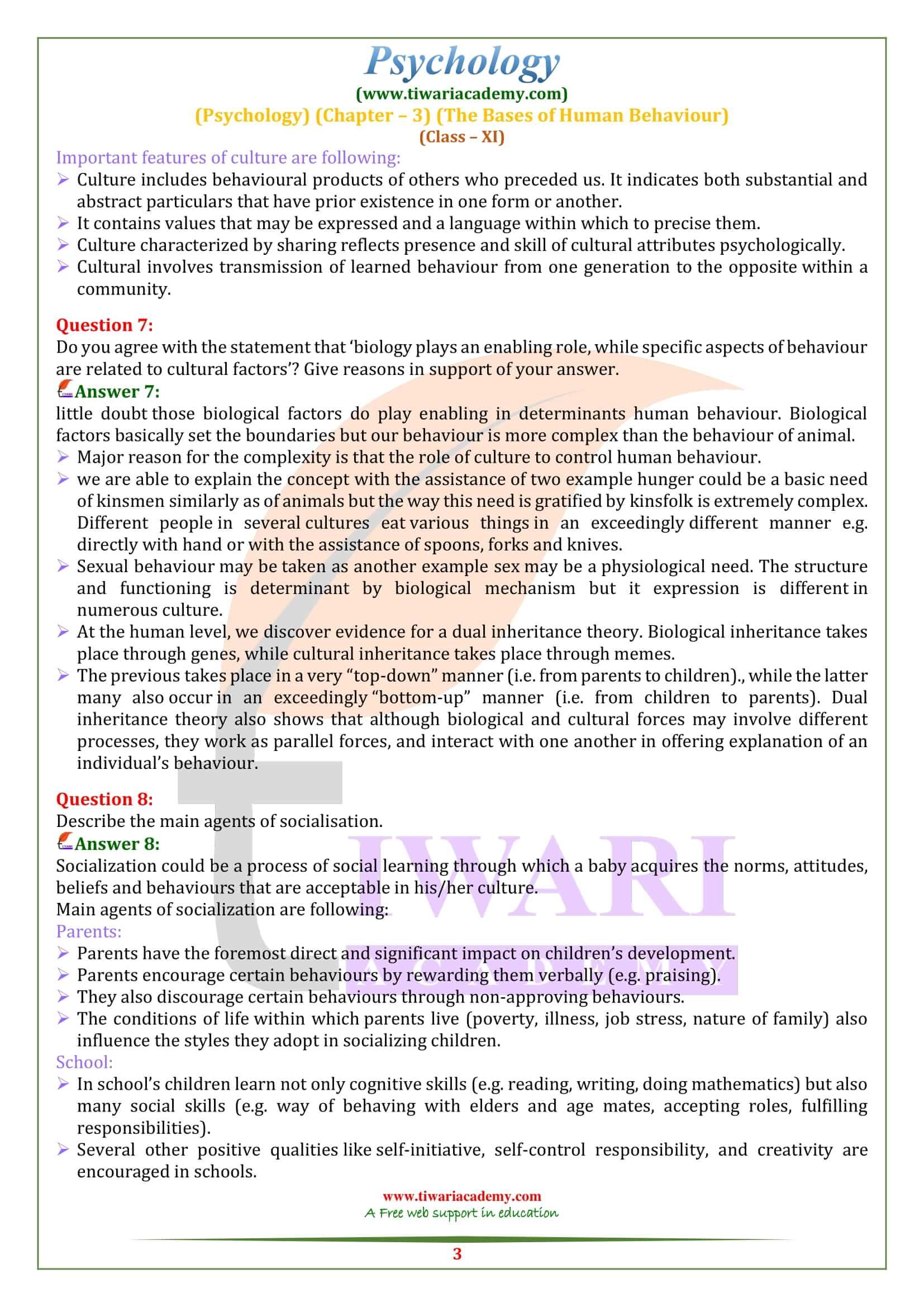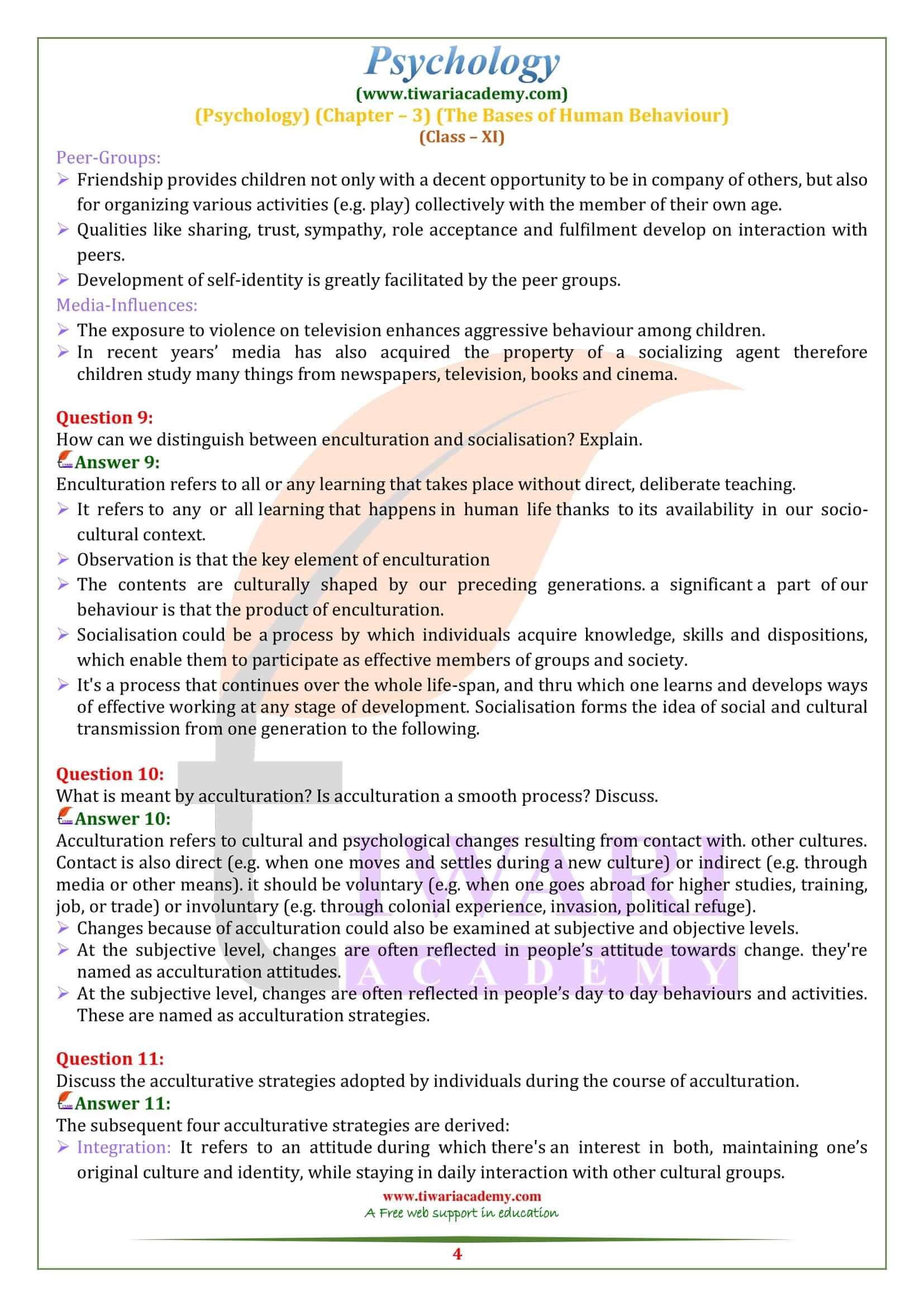NCERT Solutions for Class 11 Psychology Chapter 3 The Bases of Human Behaviour in English Medium updated for CBSE and state board students. Important Questions and MCQ are also given here for extra practice during the revision and preparation of exams.
NCERT Solutions for Class 11 Psychology Chapter 3
Class 11 Psychology Chapter 3 The Bases of Human Behaviour Question Answers
Name the various endocrine glands and the hormones secreted by them. How does the endocrine system affect our behaviour?
Name and functions of the endocrine glands are following:
- The chemical substances secreted from the endocrine are called HORMONES. These hormones influence the functions of the body and therefore the course of its development and within the growth of personality.
- Endocrine glands also control and regulate the individual’s behaviour, as an example, when there’s extra-supply of sugar within the blood-stream, certain ductless glands secrete insulin which reduces the sugar level within the blood to normal state.
- Endocrine glands play role in co-ordinating the body activities. Like in sudden, fear or danger, secretion from the system is mixed with blood which brings widely diverse activities to assist us face this example.
- The various endocrine glands work intimately to take care of equilibrium and coordinate body functions. as an example, if one gland is secreting over optimum, the opposite gland may secrete a hormone to scale back the surplus hormone and maintain equilibrium.
How does the autonomic nervous system help us in dealing with an emergency situation?
The autonomic system helps in addressing emergency situations with the assistance of its two divisions: Sympathetic division and Parasympathetic division.
Sympathetic division deals with emergencies when the action must be quick and powerful, like in situations of fight or flight. During this era, the digestion stops, blood flows from internal organs to the muscles and breathing rate, oxygen. Supply, etc. increases.
Parasympathetic division is principally concerned with the conservation of energy.
It monitors the routine functions of the inner system of the body. When the emergency is over the sympathetic activation calms down the individual to a traditional condition. As a result, all body functions like breathing rate, oxygen supply, etc. return to their normal level.
Discuss the acculturative strategies adopted by individuals during the course of acculturation.
The subsequent four acculturative strategies are derived:
- Integration: It refers to an attitude during which there’s an interest in both, maintaining one’s original culture and identity, while staying in daily interaction with other cultural groups.
- Assimilation: It refers to an attitude, which individuals don’t wish to take care of their cultural identity, and that they move to become an integral a part of the opposite culture.
- Separation: It refers to an attitude during which people seem to position a price on holding on to their original culture, and need to avoid interaction with other cultural groups.
- Marginalization: It refers to an attitude within which there’s little possibility or interest or interest in one’s cultural maintenance, and tiny interest in having relations with other cultural groups.
How can we distinguish between enculturation and socialisation? Explain.
Enculturation refers to all or any learning that takes place without direct, deliberate teaching.
- It refers to any or all learning that happens in human life thanks to its availability in our socio-cultural context.
- Observation is that the key element of enculturation
- The contents are culturally shaped by our preceding generations. a significant a part of our behaviour is that the product of enculturation.
- Socialisation could be a process by which individuals acquire knowledge, skills and dispositions, which enable them to participate as effective members of groups and society.
- It’s a process that continues over the whole life-span, and thru which one learns and develops ways of effective working at any stage of development. Socialisation forms the idea of social and cultural transmission from one generation to the following.






